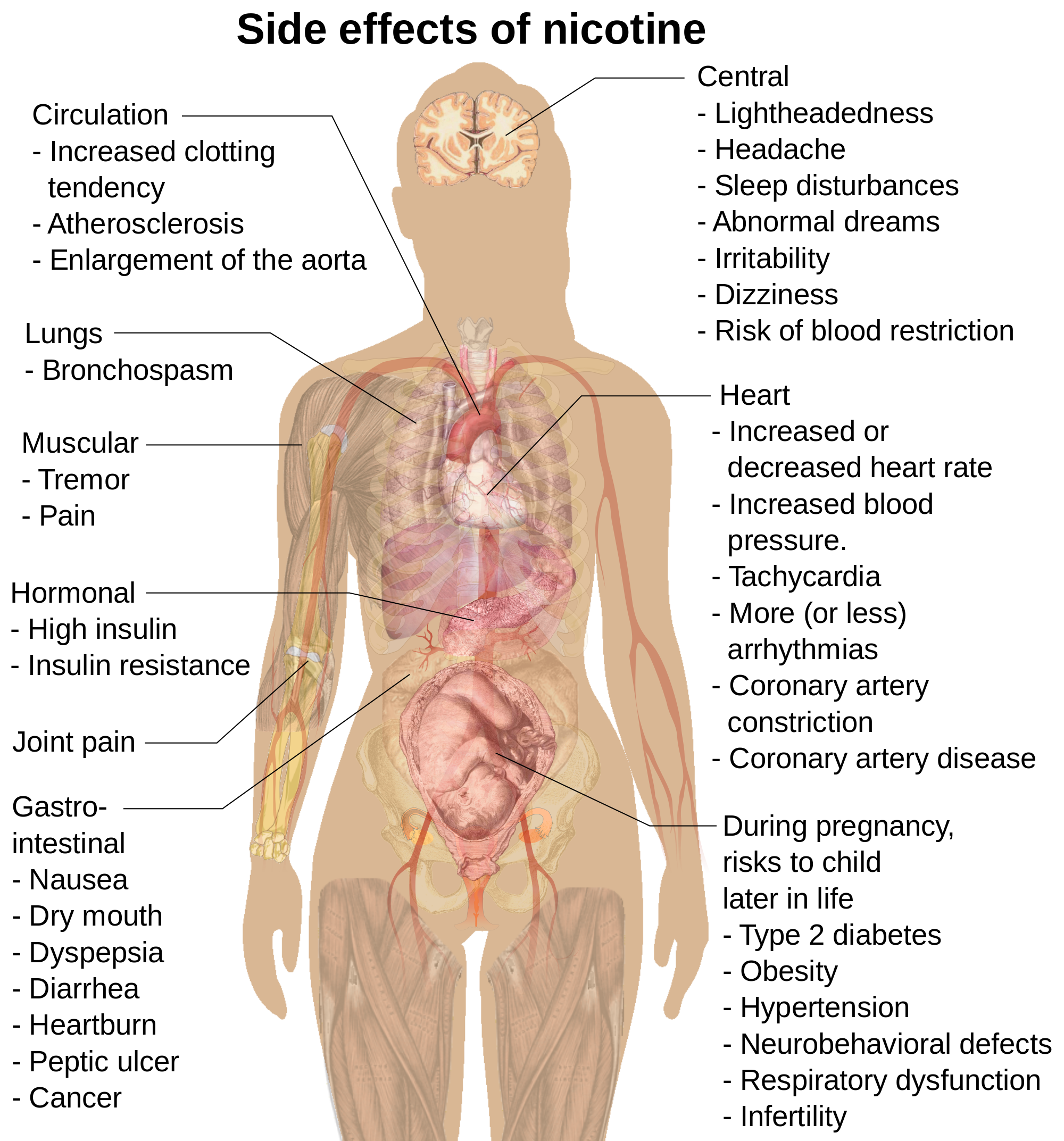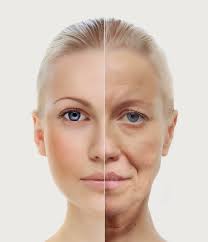Tobacco smoke is enormously harmful to your health. There’s no safe way to smoke. Replacing your cigarette with a cigar, pipe, or hookah won’t help you avoid the health risks associated with tobacco products.
Cigarettes contain about 600 ingredients. When they burn, they generate more than 7,000 chemicals, according to the American Lung Association. Many of those chemicals are poisonous and at least 69 of them can cause cancer. Many of the same ingredients are found in cigars and in tobacco used in pipes and hookahs. According to the National Cancer Institute, cigars have a higher level of carcinogens, toxins, and tar than cigarettes.
When using a hookah pipe, you’re likely to inhale more smoke than you would from a cigarette. Hookah smoke has many toxic compounds and exposes you to more carbon monoxide than cigarettes do. Hookahs also produce more secondhand smoke.
In the United States, the mortality rate for smokers is three times that of people who never smoked, according to the Centers for Disease Control and Prevention. It’s one of the leading causes of preventable death.
Smoking harms your body and may cause permanent damage to your health. If you’re still not convinced about its dangers, take a look at some of smoking’s side effects.
Short-Term And Immediate Effects
Smokers tend to have smelly clothes and hair, bad breath, and yellow or brown teeth stains. Your physical appearance can also suffer as smoking can lead to premature wrinkles, gum and tooth loss, and sudden weight change. Stomach ulcers and weakened immune system are also possible smoking side effects you might experience.
According to a new Australian study, female smokers may experience worse menstrual cramps than those who don’t. It is likely to happen as the amount of oxygen that travels to the uterus decreases when you smoke. Researchers say that women who started to smoke at the tender age of 13 have a 59 percent risk of having painful menstruation, while those who started to smoke at age 14 or 15 have 50 percent risk of experiencing it.
Some of the effects that may be experienced when smoking low to moderate doses of tobacco include:
- initial stimulation, then reduction in activity of brain and nervous system
- initial stimulation, then reduction in activity of brain and nervous system
- increased alertness and concentration
- feelings of mild euphoria
- feelings of relaxation
- increased blood pressure and heart rate
- decreased blood flow to fingers and toes
- decreased skin temperature
- bad breath
- decreased appetite
- dizziness
- nausea, abdominal cramps and vomiting
- headache
- coughing, due to smoke irritation.
Long-term Effects
Smoking kills over 400,000 people a year — more than one in six people in the United States — making it more lethal than AIDS, automobile accidents, homicides, suicides, drug overdoses, and fires combined. It is estimated that the U.S. spends an astounding $50 billion each year on smoking-related health costs. Smoking may be even more dangerous now than 30 years ago, most likely because the lower tar and nicotine levels in most cigarette brands cause people to inhale more deeply. In one study only 42% of male lifelong smokers reached the age of 73 compared to 78% of nonsmokers.

Many people don’t begin to feel the severe side effects of smoking until years later. Once you begin to feel the symptoms, you know damage has already been done. Long-term damaging side effects of smoking cigarettes include:
Central Nervous System
 One of the ingredients in tobacco is a mood-altering drug called nicotine. Nicotine reaches your brain in mere seconds. It’s a central nervous system stimulant, so it makes you feel more energized for a little while. As that effect subsides, you feel tired and crave more. Nicotine is habit forming.
One of the ingredients in tobacco is a mood-altering drug called nicotine. Nicotine reaches your brain in mere seconds. It’s a central nervous system stimulant, so it makes you feel more energized for a little while. As that effect subsides, you feel tired and crave more. Nicotine is habit forming.
Smoking increases risk of macular degeneration, cataracts, and poor eyesight. It can also weaken your sense of taste and sense of smell, so food may become less enjoyable. Your body has a stress hormone called corticosterone, which lowers the effects of nicotine. If you’re under a lot of stress, you’ll need more nicotine to get the same effect.
Physical withdrawal from smoking can impair your cognitive functioning and make you feel anxious, irritated, and depressed. Withdrawal can also cause headaches and sleep problems.
Our lungs are equipped with a layer of internal mucus that serves as a protective shield for foreign materials that we inhale, by wiping off these contaminants with small hairs called cilia. But with smokers, cilia cannot function properly as these tiny hairs work rather slowly. As a result, you cannot cough, sneeze, or swallow to get these toxins out of your body.
Respiratory System
 When you inhale smoke, you’re taking in substances that can damage your lungs. Over time, your lungs lose their ability to filter harmful chemicals. Coughing can’t clear out the toxins sufficiently, so these toxins get trapped in the lungs. Smokers have a higher risk of respiratory infections, colds, and flu.
When you inhale smoke, you’re taking in substances that can damage your lungs. Over time, your lungs lose their ability to filter harmful chemicals. Coughing can’t clear out the toxins sufficiently, so these toxins get trapped in the lungs. Smokers have a higher risk of respiratory infections, colds, and flu.
Smoking can trigger or make an asthma attack worse. It may also cause Chronic Obstructive Pulmonary Disease (COPD), which includes emphysema and chronic bronchitis. In emphysema, the air sacs in your lungs eventually lose their elasticity and start to worsen. Chronic bronchitis happens when there is a swelling in the linings of your lungs and it constrains your breathing. Long-term smokers are also at increased risk of lung cancer. Withdrawal from tobacco products can cause temporary congestion and respiratory pain as your lungs begin to clear out.
Children whose parents smoke are more prone to coughing, wheezing, and asthma attacks than children whose parents don’t. They also tend to have more ear infections. Children of smokers have higher rates of pneumonia and bronchitis.
Cardiovascular System
 Smoking damages your entire cardiovascular system. When nicotine hits your body, it gives your blood sugar a boost. After a short time, you’re left feeling tired and craving more. High levels of CO, together with nicotine, increase the risk of heart disease, hardening of the arteries and other circulatory problems.
Smoking damages your entire cardiovascular system. When nicotine hits your body, it gives your blood sugar a boost. After a short time, you’re left feeling tired and craving more. High levels of CO, together with nicotine, increase the risk of heart disease, hardening of the arteries and other circulatory problems.
Nicotine causes blood vessels to tighten, which restricts the flow of blood (peripheral artery disease). Carbon monoxide in cigarettes reduces the amount of oxygen available to the muscles, brain and blood. This means the whole body – especially the heart – must work harder. Over time this causes airways to narrow and blood pressure to rise, which can lead to heart attack and stroke.
Smoking may also lead to coronary heart disease (CHD) once the plaque liquids build up in the coronary arteries. It can lead to chest pain, heart attack, heart failure, arrhythmias, or death.
Another side effect of smoking cigarettes is Peripheral Arterial Disease (P.A.D.), which happens when plaque liquids build up to the blood vessels that deliver blood to the head, organs, and limbs.
Smoking lowers good cholesterol levels and raises blood pressure, which can result in stretching of the arteries and a buildup of bad cholesterol (atherosclerosis). Smoking raises the risk of forming blood clots.  In the long term, smokers are at greater risk of blood cancer (leukemia).
In the long term, smokers are at greater risk of blood cancer (leukemia).
There’s a risk to nonsmokers, too. Breathing secondhand smoke has an immediate effect on the cardiovascular system. Exposure to secondhand smoke increases your risk of stroke, heart attack, and coronary heart disease.
Skin, Hair, and Nails (Integumentary System)
 Some of the more obvious signs of smoking involve the skin. The substances in tobacco smoke actually change the structure of your skin. Smoking causes skin discoloration, wrinkles, and premature aging. Your fingernails and the skin on your fingers may have yellow staining from holding cigarettes. Smokers usually develop yellow or brown stains on their teeth. Hair holds on to the smell of tobacco long after you put your cigarette out. It even clings to nonsmokers.
Some of the more obvious signs of smoking involve the skin. The substances in tobacco smoke actually change the structure of your skin. Smoking causes skin discoloration, wrinkles, and premature aging. Your fingernails and the skin on your fingers may have yellow staining from holding cigarettes. Smokers usually develop yellow or brown stains on their teeth. Hair holds on to the smell of tobacco long after you put your cigarette out. It even clings to nonsmokers. 
Hair loss is another negative side effect of the lack of blood flow and circulation experienced by smokers is how the head on their hair is impacted.
Smoking decreases the level of blood flow and circulation throughout the body which affects the health, moisture and suppleness of the skin. These negative factors combine to create premature wrinkles and lines that can lead to smokers appearing older than they actually are.
Skin loses natural glow. At best a smokers skin can look dry and run down. And at worst a smokers skin can be grey and glum looking. In addition, the chemicals in cigarettes will deplete the natural vitamins and minerals in your body which would usually be working to repair skin that has been damaged by sun, wind or other such factors.
Bags under the eyes because smokers are reported to be four times as likely to feel unrested in the morning than non smokers. One of the unpleasant side-affects could be so called smokers purse. The action required to smoke a cigarette involve pursing the lips which strains certain muscles and can cause premature wrinkles on and around the lips as seen in the video below.
Overall smoking can impact your external appearance and level of attractiveness. See the video on how smoking affects the look.
And on a more serious level, smokers are subject to the potential life threatening mouth, tongue and gum cancers. Smoking depletes the naturally occurring vitamins and minerals present in the body that work to restore and repair skin that has been damaged by sun exposure.
Digestive System
 Smoking contributes to many common disorders of the digestive system, such as heartburn and gastroesophageal reflux disease (GERD), peptic ulcers, and some liver diseases. Smoking increases the risk of Crohn’s disease, colon polyps, and pancreatitis, and it may increase the risk of gallstones. Smoking may worsen some liver diseases, including primary biliary cirrhosis, a chronic liver disease that slowly destroys the bile ducts in the liver. Research has shown that smoking harms the liver’s ability to process medications, alcohol, and other toxins and remove them from the body
Smoking contributes to many common disorders of the digestive system, such as heartburn and gastroesophageal reflux disease (GERD), peptic ulcers, and some liver diseases. Smoking increases the risk of Crohn’s disease, colon polyps, and pancreatitis, and it may increase the risk of gallstones. Smoking may worsen some liver diseases, including primary biliary cirrhosis, a chronic liver disease that slowly destroys the bile ducts in the liver. Research has shown that smoking harms the liver’s ability to process medications, alcohol, and other toxins and remove them from the body
Smoking also has an effect on insulin, making it more likely that you’ll develop insulin resistance. That puts you at increased risk of type 2 diabetes. When it comes to diabetes, smokers tend to develop complications at a faster rate than nonsmokers.
Smoking also depresses appetite, so you may not be getting all the nutrients your body needs. Withdrawal from tobacco products can cause nausea.
Smokers are at great risk of developing oral problems. Tobacco use can cause gum inflammation (gingivitis) or infection (periodontitis). These problems can lead to tooth decay, tooth loss, and bad breath.
Smoking also increases risk of cancer of the mouth, throat, larynx, and esophagus. Smokers have higher rates of kidney cancer and pancreatic cancer. Even cigar smokers who don’t inhale are at increased risk of mouth cancer.
Sexuality and Reproductive System
 Restricted blood flow can affect a man’s ability to get an erection. Both men and women who smoke may have difficulty achieving orgasm and are at higher risk of infertility. Women who smoke may experience menopause at an earlier age than nonsmoking women. Smoking increases a woman’s risk of cervical cancer.
Restricted blood flow can affect a man’s ability to get an erection. Both men and women who smoke may have difficulty achieving orgasm and are at higher risk of infertility. Women who smoke may experience menopause at an earlier age than nonsmoking women. Smoking increases a woman’s risk of cervical cancer.
Smokers experience more complications of pregnancy, including miscarriage, problems with the placenta, and  premature delivery.
premature delivery.
Pregnant women who smoke have a higher risk of preterm (early) delivery, miscarriage, or stillbirth. They may encounter Sudden Infant Death Syndrome (SIDS), ectopic pregnancy, and orofacial clefts for the newborns. Women also have a great tendency of having weaker bones after menopause.
Men who smoke may encounter erectile dysfunction, poor sperm quality, and sperm defects. For women, smoking may cause reduced fertility.
 Pregnant mothers who are exposed to secondhand smoke are also more likely to have a baby with low birth weight. Babies born to mothers who smoke while pregnant are at greater risk of low birth weight, birth defects, and sudden infant death syndrome (SIDS). Newborns who breathe secondhand smoke suffer more ear infections and asthma attacks.
Pregnant mothers who are exposed to secondhand smoke are also more likely to have a baby with low birth weight. Babies born to mothers who smoke while pregnant are at greater risk of low birth weight, birth defects, and sudden infant death syndrome (SIDS). Newborns who breathe secondhand smoke suffer more ear infections and asthma attacks.
Cigarettes contain over 7,000 chemicals, some of which can cause cancer. These include formaldehyde, benzene, polonium 210, and vinyl chloride. Even worse, smoking can cause various kinds of cancers anywhere in your body, not just in your lungs, such as:
- Adult Acute Leukemia
- Adult Chronic Leukemia
- Cervical Cancer
- Esophagus Cancer
- Laryngeal Cancer
- Kidney Cancer
- Oropharyngeal Cancer
- Pancreas Cancer
- Stomach Cancer
- Urinary Bladder
Note: People who use tobacco regularly tend to develop a tolerance to the effects of nicotine. This means they need to smoke more tobacco to get the same effect.
They may become dependent on nicotine. Dependence can be psychological, physical, or both. People who are dependent on nicotine find that using the drug becomes far more important than other activities in their life. They crave the drug and will find it very difficult to stop using it.
People who are psychologically dependent on nicotine may find they feel an urge to smoke when they are in specific surroundings or socializing with friends. Check also What Happens When a Smoker Quits
Here is the list of general long-term effects of smoking:
- increased risk of stroke and brain damage
- increased risk of stroke and brain damage
- eye cataracts, macular degeneration, yellowing of whites of eyes
- loss of sense of smell and taste
- yellow teeth, tooth decay and bad breath
- cancer of the nose, lip, tongue and mouth
- possible hearing loss
- laryngeal and pharyngeal cancers
- contributes to osteoporosis
- shortness of breath
- coughing
- chronic bronchitis
- cancer
- triggering asthma
- emphysema
- heart disease
- blockages in blood supply that can lead to a heart attack
- high blood pressure (hypertension)
- myeloid leukaemia, a cancer that affects bone marrow and organs that make blood
- stomach and bladder cancers
- stomach ulcers
- decreased appetite
- grey appearance
- early wrinkles
- slower healing wounds
- damage to blood vessel walls
- increased likelihood of back pain
- increased susceptibility to infection
- lower fertility and increased risk of miscarriage
- irregular periods
- early menopause
- damaged sperm and reduced sperm
- impotence
Thinking of Quitting?
Quitting smoking isn’t easy, but it’s definitely worth the struggle, and there are resources available to help you quit today. If you’re ready for the benefits of a smoke-free life, check THIS PAGE to start on the path to quitting.

Also you can look at NICOBAN - Natural Herbal Stop Smoking Program is an all-natural program that is guaranteed to help you quit smoking in just 7 days.
Sources and References
American Lung Association http://www.lung.org/stop-smoking/about-smoking/facts-figures/whats-in-a-cigarette.html
National Cancer Institute https://www.cancer.gov/about-cancer/causes-prevention/risk/tobacco/cigars-fact-sheet
Centers for Disease Control and Prevention http://www.cdc.gov/tobacco/data_statistics/fact_sheets/health_effects/tobacco_related_mortality/index.htm
You may also like:






